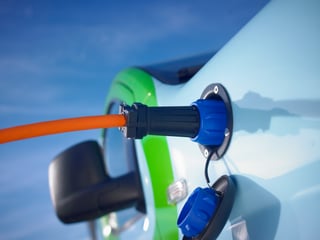Jon Kotrba, Business Field Manager - Commercial Services for TUV Rheinland of North America shares what you need to know about charging and maintaining your electric vehicle (EV) and the impact of extreme cold weather.

The dangerous and extreme cold weather battering some countries has seen temperatures below -10° C. How prepared are you and your electric vehicle to make it through the winter?
For those of us living in the northern hemisphere, we all have experienced, or know someone who has experienced, the first extremely cold day of winter. You get out to your car, turn the key and nothing happens! You are unable to start your car. In most cases this is due to the impact of the weather. Your car's battery performance fails and is unable to deliver the required voltage and current needed to start your vehicle. The first bitter cold of the season is often enough to finish off a lead acid car battery that is more than 7 years old, requiring it be replaced.
So what do you do if your vehicle is entirely battery powered? Is it possible for the extreme cold to leave you entirely stranded or damage your car’s battery to the point where replacement is required? As we move towards reliance on solely battery powered vehicles, where the cost of the battery power unit can be tens of thousands of dollars, what can be done to extend the life of those batteries in extreme temperatures?
Extreme cold weather is a batteries enemy, that much is certain. Even charging in extremely cold conditions places increased wear on battery cells. Some car manufacturers have intelligent controls built into their charging circuits. These controls help insure that the battery is pre-heated before charging of the battery starts. This is required for the protection of the battery and helps to reduce wear. And, if cold enough, can allow the battery to be able to receive a charge. Some battery thermal management system will also continue to keep the battery warm when not being charged to insure optimal performance which will discharge the battery and impact driving range.
It is important to make sure that any EVSE used with your vehicle has been tested by a nationally recognized testing laboratory such as TUV Rheinland. This equipment is typically working with lethal voltages and currents (shock and fire potential) and TUV Rheinland tests to insure the electrical and fire safety of the equipment. Use of non-tested equipment could not only damage your EV, but also could be a safety hazard.
During the winter, parking the vehicle in the garage and plugging in will keep the batteries thermal management system engaged without continuously draining the batteries. If possible, keeping your electric vehicle maintained in a climate controlled environment above freezing will extend the batteries performance. However, during extreme weather conditions plan ahead and be ready for at least a slight reduction in your normal driving range.
Please visit our website for more information on our mobility services.
If you are interested to find out more, do drop us a note by leaving us with your contact information here and one of our experts will be speaking to you shortly.



